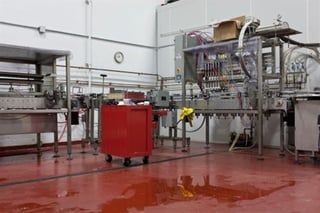
When a business is sold, the price you negotiate is based on a wide range of factors, including real estate, anticipated income, goodwill and assets. But how do you determine the equipment values of what you're selling or purchasing? The best method is by allocation of assets, which puts a price tag on everything that is changing ownership, allowing you to document the data and for each items to be depreciated and accounted for it in the business' records. But how is the total price determined and allocated across the business? This is where asset allocation using equipment appraisals can help.
How an Equipment Appraisal Can Help with Allocation of Assets
Whether you're determining the value of your assets or need to break down the price you're paying for a business across its assets, an equipment appraisal can make all the difference. It will look at each individual piece of equipment or groups and document the equipment value for a wide range of purposes. Beyond allocating for tax purposes here are a few additional thoughts:
- Purchase of a business: When you need to set up accounting for a business you've purchased, knowing which portion of the purchase price went into equipment helps you determine the initial values and makes it easier for you to depreciate the value of each piece of equipment based on its expected useful life span.
- Donations to charitable organizations: If you didn't initially set up separate equipment values when you purchased equipment, you may not know what it's worth if you donate it to a charity. Without the needed documentation, it can be difficult to prove value to a tax agency for the price paid versus the value when donated.
- Insurance claims: When you have a loss due to fire, theft, vandalism or other disaster, you need to quickly settle your insurance claim so that you can get back to business as quickly as possible. Unfortunately, without proof of the machinery's value that will stand up to scrutiny, this process can be much longer and more drawn out. Having a valuation report from a certified appraiser makes the process go much more quickly.
- Loan collateral: Whether you're expanding or upgrading your business, or are simply using machinery as collateral for a particular project, being able to document what that collateral is worth makes the process go more smoothly and makes it more likely that you'll be approved for financing.
By getting a quality machinery valuation performed by a certified equipment appraiser, you can document the allocation of assets across a business, ensuring assets can be properly tracked. But don't just go to a local dealership and hope they give you the right numbers, because that can prevent you from fully realizing what your equipment is worth. They may be providing biased numbers to get a trade-in. A certified equipment appraiser has gone through training in the appropriate methodologies to provide you with an equipment appraisal that will hold up to scrutiny.

